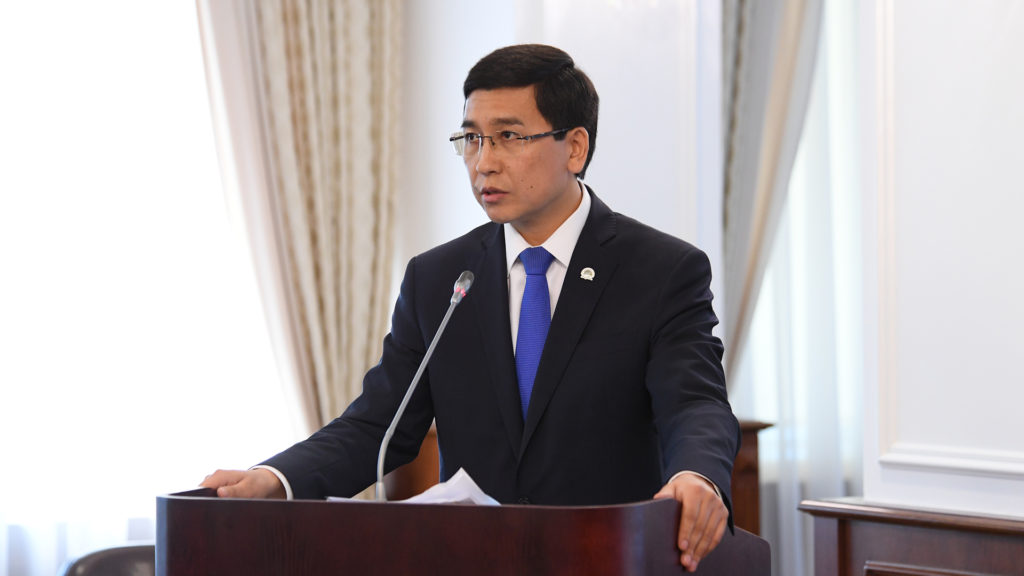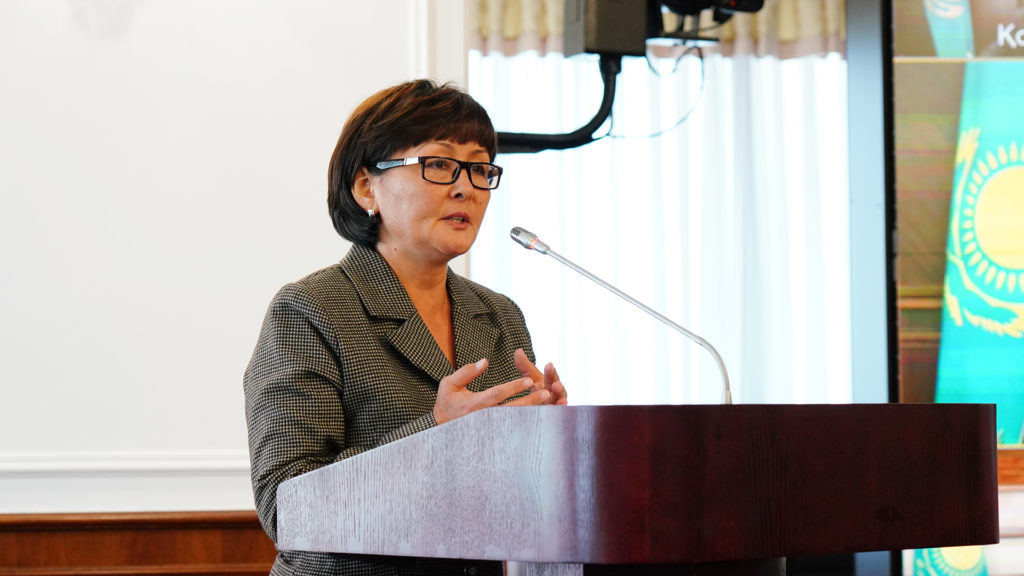NUR-SULTAN – The draft laws On the Status of the Teacher and On Amendments and Additions to Certain Legislative Acts on the Status of the Teacher and Reducing the Workload of Students and Teachers were approved at an Aug. 27 government meeting chaired by Kazakh Prime Minister Askar Mamin.
The draft laws, presented by Kazakh Minister of Education and Science Askhat Aimagambetov at the government meeting, will be submitted for consideration at the Kazakh Mazhilis (lower house of Parliament) by Sept. 1.
The laws were developed on the initiative of Kazakhstan’s First President, Nursultan Nazarbayev, and address the tasks set by Kazakh President Kassym-Jomart Tokayev on boosting the status of teachers to improve the education system.
“We plan to create conditions for teachers’ professional growth and boost their competitiveness,” said Mamin. “The task is to also establish incentives for teachers and boost the prestige of the profession.”
The laws draw on international experience and more than 18,000 suggestions from teachers in Kazakhstan.
The draft law On Amendments and Additions to Certain Legislative Acts on the Status of the Teacher and Reducing the Workload of Students and Teachers will introduce amendments and additions to three codes and 15 laws if adopted.
The draft law On the Status of the Teacher features 19 articles, including financial and non-financial incentives for teachers’ professional growth, and aims to provide teachers with more opportunities for creativity and self-development in their profession.
Teachers will be rewarded for taking on additional duties, such as mentoring, and earning higher qualifications, such as master’s degrees. They will also see increased wages and paid leave. Akims (governors) of regions will have the authority to independently distribute financial support for teachers according to their regional budget.
“The main financial incentives were additional pay for classroom management, coursework grading, additional pay for learning new teaching skills, an increase in the period of paid leave to up to 56 days and additional pay for a master’s degree and mentoring,” said Aimagambetov.
Teachers’ professional rights will be expanded so that they will be able to develop and apply copyrighted teaching methods and aids, use information resources more freely and have more autonomy in choosing how to boost their qualifications.
“There will also be new norms to reduce the workload placed on teachers by establishing a ban on engaging them in non-typical functions, excessive reporting or unreasonable audits,” said Aimagambetov on non-financial incentives for teachers’ growth.
“For the first time, a law will clearly state that a teacher should primarily teach and educate children,” said Nikolskaya Secondary School Teacher Nesken Kuttybayeva. “For the first time, mentoring was singled out as a separate direction for teacher development. We really hope that the adoption of the law will attract young and talented professionals, which schools desperately need.”


